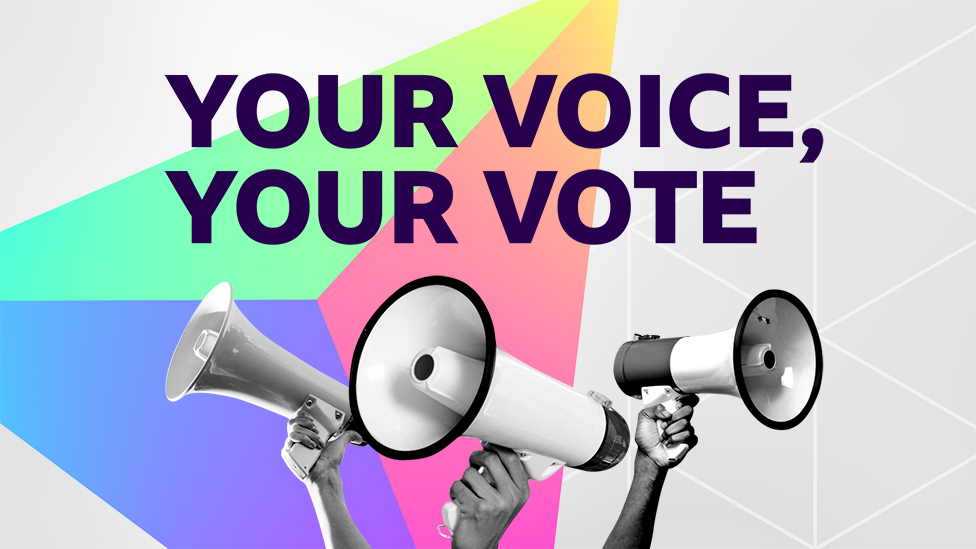'In the UK you can't vote for what you believe in'

Student, Charlie Hall, wants to know where the parties stand on electoral reform
- Published
In the run up to the general election, the BBC is looking at the issues that matter the most to you, as part of Your Voice, Your Vote.
Student Charlie Hall, 20, who lives in Kettering, Northamptonshire, says he is most concerned about voting reform and would like to vote for a party keen to bring in proportional representation (PR).
"For me, my top issue is voting system reform, young people especially feel that our votes aren't heard, whether you’re talking about the Greens or Reform, it feels so unfair that a party can get millions of votes, but only a handful of seats," he said.
The computer science undergraduate said: "The idea of a wasted vote shouldn't exist, but you can't really vote for what you believe in, in the UK.
"Every vote should be equal to some degree of representation in Parliament."

What do the political parties say about electoral reform?
The Conservative Party is unequivocal in its stance. The party's manifesto, external says: "We remain committed to the First Past the Post system (FPTP) for elections, maintaining the direct link with the local voter.
"We will not change the voting age from 18. We will maintain rules to tackle voting fraud, including the requirement to show ID."
In 2022 delegates at the Labour Party Conference passed a motion voting for a manifesto commitment , externalto PR for general elections. However, Labour does not make mention of PR or changes to the FPTP system of voting in its 2024 manifesto.
The Liberal Democrats says it plans to introduce a political system "with fair representation" and will introduce PR by the single transferable vote, external for electing MPs and local councillors in England.
Both the Green Party and Reform UK are also advocates of PR, perhaps as parties standing to benefit most if the voting system was to be changed to this system.
According to Reform UK's manifesto, it would introduce PR as part of its constitutional changes to the House of Commons.
"Large numbers of voters have no representation in Parliament and new parties are shut out of the political system. Voter turnout could be some 10% higher with PR," its manifesto pledges.
The Green Party says elected Greens will push to replace FPTP system for parliamentary elections "with a fair and proportional voting system".
How are votes turned into parliamentary seats?
MPs are our representatives in the House of Commons.
The outcome of the general election will be determined according to the FPTP system, with the candidate receiving the most votes in a local constituency winning a seat in the House of Commons.
This means the number of seats each political party wins does not reflect its share of the vote nationally.
PR would see parties' seats in Parliament being allocated in proportion to the number of votes cast.
According to the Electoral Reform Society, external this can work in a number of ways, including having more than one representative for an area - whether it be a country, county or town - based on vote share.

What really matters to you in this general election? What is the one issue that will influence your vote? Click the button below to submit your idea, and it could be featured on the BBC.